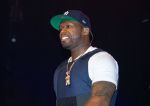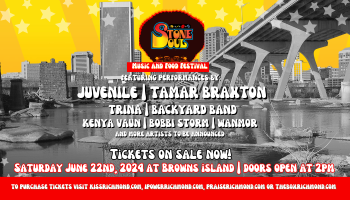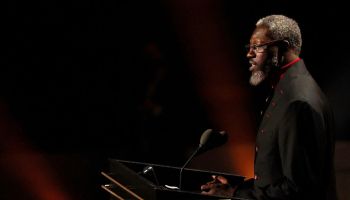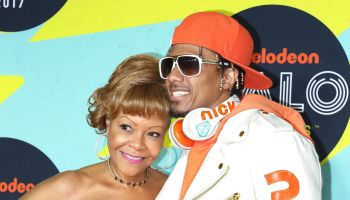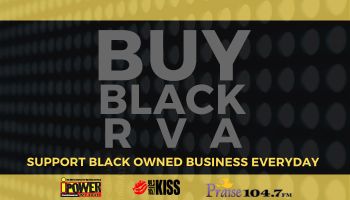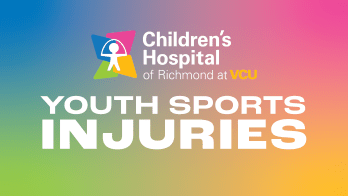Black Hollywood: the ebony Shangri-la of showbiz. In tinsel town, behind the flash bulbs of paparazzi snapshots, behind the casting cattle calls and behind a storyteller’s script is the film director. These hot-bloodied visionaries are the eyes and ears of the camera’s aperture. Visionaries like Hype Williams, Robert Townsend and Kennen Ivory Wayans have leaped into the limelight, looking to expose the grit of the world, allowing us to experience (or rather re-experience) the magnitude of the ailments of mankind. It is because of this that these men are huge influences on pop culture. But, how influential? Here is the list of our 7 all-time favorite directors in black Hollywood.
Tiny
F. Gary Gray (*New Edition*)
You know, it’s rare. We’ve usually left out some important figures in our bevy of lists and other incarnation, sometimes to the satisfaction or the chagrin of our readers. But we heard concerns about our Small, Medium, Giant inventory of directors African-American cinema, and our readers were right on the money when director F. Gary Gray was left off. He should be noted for his work. The director of the buddy dramedy Friday, one of the funniest films ever conceived, broke new ground by showing the African-American experience in a hood setting from the eyes and growing pains of twenty-somethings. In a sense, it was a bigger, better Clerks. Its stars Ice Cube—already a rising acting talent with Boyz n the Hood and Higher Learning—and Chris Tucker became movie stars. His follow-up, crime drama Set it Off delivered the most stunning performance of Queen Latifah’s career and influenced the later half of 90s hip-hop. However, despite his work in music videos (“It Was a Good Day” by Ice Cube, “Waterfalls” by TLC, “Ms. Jackson by Outcast), we haven’t seen Gray surpass his 90s heyday. The Italian Job: Bust. Be Cool: A Bust. Law Abiding Citizen: A Bust. See, where we’re coming from?
Small
Lee Daniels
Once upon a time, Lee Daniels was a better producer than he was director. His directorial debut Shadowboxer was a bust. The Oscar-winning Monster’s Ball—a film he produced—won Halle Berry the coveted Best Actress award. So, when he finally produced the goods—directing another Oscar-winning picture, Precious: Based on the Novel “Push” by Sapphire—we were on the fence. Making history as one of the second African-American director and the first openly gay director to be nominated for an Oscar, he indeed proved he was a giant.
Smedium
Antoine Fuqua
Directing music videos for Coolio, Toni Braxton and Prince, Antoine Fuqua left his MTV rotation cloud nine to direct Hollywood blockbusters Tears of the Sun, King Arthur, Shooter and the recent Brooklyn’s Finest. But, he truly shined when he tapped Denzel Washington to star in the now-legendary Training Day, and we enjoyed the hard-boiled intensity and the “black Oscar night,” in which Washington won his second Oscar.
Medium
The Hughes Brothers
Known for directing hood films like Dead Presidents and American Pimp, the Hughes twins, Albert and Allen ditched their terrifyingly visceral take on the ultra-violent gun-toting 90s thug life hood films epitomized in the critically-lauded Menace II Society. After winning top honors at the MTV Movie Awards, the urban hostility and authoritative significant messages of the film coupled with Lorenz Tate take on a sociopathic inner-city teenager “O-Dog,” the boys started experimenting. With films like the Jack the Ripper period thriller From Hell and the post-apocalyptic action suspense driven The Book of Eli, the boys are getting off to a good start.
Large
John Singleton
When you think of a Giant, especially when you think of directors, chances are you’ll think John Singleton. Kicking off his career with hits Boyz n the Hood, Poetic Justice and Higher Learning, which showed the jarring inner-city decay of South Los Angeles in the mid-90s, Singleton became the first African-American to be nominated for the Oscar. Despite directing landmark music videos like Michael Jackson’s “Remember The Time,” he released cult classic Baby Boy, revenge film Four Brothers and action film 2 Fast 2 Furious. We can’t hate on a man who is on his grind.
Mammoth
Tyler Perry
The Renaissance man known for combining womanism, church and drag is just as controversial as he is acclaimed. The actor-director and playwright left his days as a luminary in Southern theatres and released the now-legendary Diary of a Mad Black Woman starring the whoop-ass take-no-prisoners matriarch Mabel “Madea” Simmons in 2005. Only four years later, he ranked on the sixth highest-paid man in Hollywood by Forbes magazine, grossing a collective $400 million worldwide.
GIANT
Spike Lee
Born Shelton Jackson Lee, “Spike” is solely responsible for splicing race relations and art as well as pushing poverty, crime and the dilapidation of the black community to the forefront. He is also responsible for presenting blacks as cognizant, conscious and sensual—not sexual—beings. His iconic production studio, 40 Acres & A Mule Filmworks, has produced nigh 40 films since its 1983 debut and the hard work has won Lee an Emmy and two Oscar nods. His signature “A Spike Lee Joint” is also plastered on monumental films Do The Right Thing, Mo’ Better Blues, Jungle Fever, Malcolm X, Crooklyn, Clockers, Get On The Bus, Summer of Sam, Bamboozled and Inside Man… to name a few. Simply put, he’s the man. Our only regret (and his as well) is that he lost to Driving Miss Daisy in 1989 for Best Picture.
7 Top Black Directors was originally published on giantlife.com







